
New Books in Buddhist Studies
Interviews with Scholars of Buddhism about their New Books
- 56 minutes 7 secondsAlastair Gornall, "Rewriting Buddhism: Pali Literature and Monastic Reform in Sri Lanka, 1157–1270" (UCL Press, 2020)
Rewriting Buddhism: Pali Literature and Monastic Reform in Sri Lanka, 1157–1270 (UCL Press, 2020) is the first intellectual history of premodern Sri Lanka’s most culturally productive period. This era of reform (1157–1270) shaped the nature of Theravada Buddhism both in Sri Lanka and also Southeast Asia and even today continues to define monastic intellectual life in the region.
Alastair Gornall argues that the long century’s literary productivity was not born of political stability, as is often thought, but rather of the social, economic and political chaos brought about by invasions and civil wars. Faced with unprecedented uncertainty, the monastic community sought greater political autonomy, styled itself as royal court, and undertook a series of reforms, most notably, a purification and unification in 1165 during the reign of Parakramabahu I. He describes how central to the process of reform was the production of new forms of Pali literature, which helped create a new conceptual and social coherence within the reformed community; one that served to preserve and protect their religious tradition while also expanding its reach among the more fragmented and localized elites of the period.
Rewriting Buddhism is available for free open-access download at uclpress.com/buddhism.
Bruno M. Shirley is a PhD candidate at Cornell University, working on Buddhism, kingship and gender in medieval Sri Lankan texts and landscapes. He is on Twitter at @brunomshirley.
Learn more about your ad choices. Visit megaphone.fm/adchoices
Support our show by becoming a premium member! https://newbooksnetwork.supportingcast.fm/buddhist-studies
6 January 2025, 9:00 am - 1 hour 7 minutesNathan McGovern, "Holy Things: The Genealogy of the Sacred in Thai Religion" (Oxford UP, 2024)
Scholars of religion have mostly abandoned the concept of "syncretism" in which certain apparent deviations from "standard" practice are believed to be the result of a mixture of religions. This is particularly relevant to Thailand, in which ordinary religious practice was seen by an earlier generation of scholars as a mixture of three religions: local spirit religion, Hinduism, and Buddhism. In part, the perception that Thai Buddhism is syncretistic is due to a misunderstanding of traditional Buddhism, which has always accepted the existence of local spirits and gods. Nevertheless, there are aspects of Thai Buddhist practice that still stubbornly appear syncretistic. Moreover, Thai Buddhists themselves are increasingly adopting the language of syncretism, referring to traditional Thai religion as a mixture of local, Hindu, and Buddhist practices. This raises the question: If syncretism is so wrong, then why does it seem so right?
In Holy Things: The Genealogy of the Sacred in Thai Religion (Oxford UP, 2024), Nathan McGovern answers this question through an in-depth study of the worship of spirits, gods, and Buddha images--all known as sing saksit, or "holy things"--in Thailand. He takes the reader on a historical and genealogical journey, showing how the category saksit began as a term to describe a power that is inherent to gods and spirits and accessible to Brahmans. Only later, when it was used in the nineteenth century to translate the Western concept of the "holy" did it become associated with Buddhist practice. McGovern shows that what appears to be syncretism is actually an illusion. The worship of "holy things" is not a mixture of different religions, but the category of "holy things" is a mixture of different ways of talking about religion.
Learn more about your ad choices. Visit megaphone.fm/adchoices
Support our show by becoming a premium member! https://newbooksnetwork.supportingcast.fm/buddhist-studies
19 December 2024, 9:00 am - 1 hour 54 minutesNon Buddhist Mysticism: Performing Irreducible and Primitive Presence
Glenn’s latest, Non Buddhist Mysticism: Performing Irreducible and Primitive Presence (Eyecorner Press, 2022), presents a radical reorientation to “spiritual” practice.
Drawing from François Laruelle’s concept of future mysticism and the author’s own previous work on non-buddhism, Glenn Wallis galvanizes a materialist spirituality for the twenty-first century.
Liberated from the punctilious gaze of the masters, delivered into the hands (and hearts) of the reader, this is a spirituality “born in the spirit of heresy rather than sanctity.”
The intended outcome is a subject “fit for the clash with Hell” – a person equipped, lovingly and compassionately, to confront the injustices of the world.
We also look at the great work taking place at INCITE Seminars, a place of practice which all listeners are invited to.
Learn more about your ad choices. Visit megaphone.fm/adchoices
Support our show by becoming a premium member! https://newbooksnetwork.supportingcast.fm/buddhist-studies
11 December 2024, 9:00 am - 1 hour 6 secondsAdeana McNicholl, "Of Ancestors and Ghosts: How Preta Narratives Constructed Buddhist Cosmology and Shaped Buddhist Ethics" (Oxford UP, 2024)
In Buddhist cosmology, pretas make up one of several categories of rebirth. They are best known as "hungry ghosts," pitiful beings with miniscule mouths and bloated stomachs whose state of extreme starvation is a result of stinginess and immorality in a former life.
But they were not always portrayed in this way. Of Ancestors and Ghosts: How Preta Narratives Constructed Buddhist Cosmology and Shaped Buddhist Ethics (Oxford UP, 2024) traces the construction of the Buddhist realm of the pretas through narrative literature composed in Pali and Sanskrit in the first millennium of Buddhism's development in South Asia. By exploring issues such as where the departed go after they die, how the living can assist the dead in the next world, and how the departed fits into a karmic cosmology, Buddhist monks used these stories to construct the preta realm and, with it, Buddhist cosmology as we know it today. In the process they established themselves as religious experts concerning the dead. Of Ancestors and Ghosts illustrates the importance of narrative for the construction of religious cosmologies, showing that cosmologies come into formation over a long, cumulative process.
Far from being simple morality tales, preta literature helped develop and articulate Buddhist understandings of actions and their fruits. In the process, these narratives portray ethical cultivation as inherently connected to the cultivation of bodies. As a result, stories about pretas speak to the vast range of embodied experiences in the Buddhist cosmos, including the intersection of human/non-human identity and class, caste, gender, and sexuality. These stories help model and elicit aesthetically informed embodied experiences that are themselves ethically formative. As a result, preta literature highlights the enduring importance of emotions and embodiment on the Buddhist path to awakening.
Personally, for me as a NBN host, this book models for us, a care-based research paradigm that takes seriously seemingly "supernatural" or "superstitious" narratives NOT as raw materials but as mirrors to reflect upon the limits of our own scholarly practices and as theoretical resources to expand existing ways of producing knowledge.
A transcript is available here.
Learn more about your ad choices. Visit megaphone.fm/adchoices
Support our show by becoming a premium member! https://newbooksnetwork.supportingcast.fm/buddhist-studies
9 October 2024, 8:00 am - 1 hour 20 minutesRafal K. Stepien, "Buddhism Between Religion and Philosophy: Nāgārjuna and the Ethics of Emptiness" (Oxford UP, 2024)
Nāgārjuna (c. 150-250), founder of the Madhyamaka or Middle Way school of Buddhist philosophy and the most influential of all Buddhist thinkers aside from the Buddha himself, concludes his masterpiece, Fundamental Verses on the Middle Way, with these baffling verses:
For the abandonment of all views
He taught the true teaching
By means of compassion
I salute him, Gautama
But how could anyone possibly abandon all views? In Buddhism Between Religion and Philosophy: Nāgārjuna and the Ethics of Emptiness (Oxford UP, 2024), Rafal K. Stepien shows not only how Nāgārjuna's radical teaching of no-view or “abelief” makes sense within his Buddhist philosophy, but also how it stands at the summit of his religious mission to care for all living beings. Rather than treating any one aspect of Nāgārjuna's ideas in isolation, here his metaphysics, epistemology, and ethics emerge as a single coherent and convincing philosophical-religious system of thought and practice.
Grounded in meticulous study of original texts from classical India and China but innovating on the theories and methods underpinning contemporary scholarship East and West, this study shows how profoundly important voices from the diverse religious and philosophical traditions of the world have until now been diminished, distorted, and silenced. In opening up truly global horizons of existing and co-existing in the world, this work challenges the very ways in which we think about religion and philosophy.
* Elucidates Nāgārjuna's thought in its Buddhist context, integrating his views on belief and intention, language and mind, action and attachment, selfhood and suffering, violence and peace, emptiness and Buddhahood
* Presents a trenchant critique of the Christian and Western assumptions still dominating the study of religion and philosophy today
* Introduces and clarifies ideas of pivotal importance to the history of Buddhist thought in India, Tibet, China, and Japan
Readers may also find a related edited volume equally fascinating, Buddhist Literature as Philosophy and Buddhist Philosophy as Literature
Prof. Rafal Stepien is also leading a collaborative project, " The Ethics of Empty Beliefs: Chinese Buddhist Philosophy in the ‘Period of Disunity’" that has openings for postdocs and will host several workshops on studies of Sanlun and its influences in Sinophone spheres.
Learn more about your ad choices. Visit megaphone.fm/adchoices
Support our show by becoming a premium member! https://newbooksnetwork.supportingcast.fm/buddhist-studies
24 September 2024, 8:00 am - 57 minutes 21 secondsThe Body in Classical Hathayoga, with Ruth Westoby
In this episode Dr Pierce Salguero sits down with Ruth Westoby a scholar, teacher, and practitioner of yoga. We discuss Ruth’s work on the body in early hatha yoga texts. We talk about the broad diversity of approaches to the material body in these sources, including their ideas about gender, the cultivation of powers, and approaches to liberation. Along the way, we touch on yogic sex, practices to stop menstruating, and the courageous work that modern practitioners have been doing to expose abuse by yoga gurus.
If you want to hear more from experts on Buddhism, Asian medicine, and embodied spirituality then subscribe to Blue Beryl and don’t miss an episode!
Resources mentioned in the episode:
- Preliminary published results from Ruth’s research
- Mallinson and Szántó, The Amṛtasiddhi and Amṛtasiddhimūla (2021).
- Jason Birch, The Amaraugha and Amaraughaprabodha of Gorakṣanātha(2023).
- Elena Valussi, “The Physiology of Transcendence for Women” (2009)
- BBP episode with Dominic Steavu
- Hatha Yoga Project
- Articles on guru abuse by Pattabhi Jois: Anneke Lucas, Karen Rain, Amanda Lucia
- Inform Project
- Video footage of Ruth doing historical āsanas
- Ruth’s website and email newsletter, Facebook page, Instagram
Pierce Salguero is a transdisciplinary scholar of health humanities who is fascinated by historical and contemporary intersections between Buddhism, medicine, and crosscultural exchange. He has a Ph.D. in History of Medicine from the Johns Hopkins School of Medicine (2010), and teaches Asian history, medicine, and religion at Penn State University’s Abington College, located near Philadelphia. www.piercesalguero.com.
Learn more about your ad choices. Visit megaphone.fm/adchoices
Support our show by becoming a premium member! https://newbooksnetwork.supportingcast.fm/buddhist-studies
8 September 2024, 8:00 am - 45 minutes 40 secondsChristopher P. Miller et al., "Beacons of Dharma: Spiritual Exemplars for the Modern Age" (Lexington, 2019)
Today’s globalized society faces some of humanity’s most unprecedented social and environmental challenges. Presenting new and insightful approaches to a range of these challenges, Beacons of Dharma: Spiritual Exemplars for the Modern Age (Lexington, 2019) draws upon individual cases of exemplary leadership from the world’s Dharma traditions—Hinduism, Sikhism, Jainism, and Buddhism. Taking on difficult contemporary issues such as climate change, racial and gender inequality, industrial agriculture and animal rights, fair access to healthcare and education, and other such pressing concerns, Beacons of Dharma offers a promising and much needed contribution to our global remedial discussions. Seeking to help solve and alleviate such social and environmental issues, each of the chapters in the volume invites contemplation, inspires action, and offers a freshly invigorating source of hope.
Learn more about your ad choices. Visit megaphone.fm/adchoices
Support our show by becoming a premium member! https://newbooksnetwork.supportingcast.fm/buddhist-studies
5 September 2024, 8:00 am - 1 hour 29 minutesAlone in a World of Wounds with Zen Abbot Shodhin Geiman
Shodhin Geiman is Sensei & Abbot at Chicago Zen Center and recently retired Senior Research Professor at Valparaiso University. He has written on aspects of the Dharma and on points of interface between Buddhist and Christian spirituality. His book, Alone in a World of Wounds: A Dharmic Response to the Ills of Sentient Beings (Cascade Books, 2022). Another, Obstacles to Stillness: Thoughts, Hindrances, and Self-Surrender in Evagrius and the Buddha (Fortress Press, 2023), came out in 2023. He is currently working on a book exploring the intrepid fearlessness of bodhisattvic aspiration.
In this conversation we explore his views on Dharma and Activism and Engaged Buddhism as developed in his critical take on both, Alone in a World of Wounds.
We discuss;
1. His two books on practice.
2. The concepts of deliverance of mind and non-adherence in the practicing life.
3. The unfashionable practices of patience and forbearance and why they matter.
4. Why mixing Buddhism and activism is not all it is cracked up to be.
5. The inherent problems with trying to serve two masters and the impact this has on dharma practice.
6. The Slovenian philosopher Slavoj Zizekis critique of the New left and activism and the call to stop and think before acting.
7. How the desire to fix the world runs in tandem with the desire to fix ourselves and how both are so deeply rooted in American Buddhism.
8. Kant and sublime objects.
Learn more about your ad choices. Visit megaphone.fm/adchoices
Support our show by becoming a premium member! https://newbooksnetwork.supportingcast.fm/buddhist-studies
29 August 2024, 8:00 am - 48 minutes 7 secondsJustine Chambers, "Pursuing Morality: Buddhism and Everyday Ethics in Southeastern Myanmar" (NUS Press, 2024)
What is the right way to live? This is an old question in Western moral philosophy, but in recent years anthropologists have turned their attention to this question in what has been called, a “moral turn”. In this original ethnographic study, Pursuing Morality: Buddhism and Everyday Ethics in Southeastern Myanmar (NUS Press, 2024), Justine Chambers examines the Plong (Pwo) Karen people’s conception of themselves as a moral people. In the decade between Myanmar’s opening up in 2011 and the military coup in 2021, the Plong Karen community near the Myanmar-Thailand border has experienced rapid political, economic, and social change. These changes are challenging that conception. Based on extensive fieldwork Chambers examines the sources of Plong morality, particularly Theravada Buddhism, and how moral considerations are being impacted: by increasing access to higher education; the powerful economic draw of Thailand; young women questioning older gender roles; the rise of Buddhist millenarian movements and Buddhist nationalism; and growing anti-Muslim sentiment shared by much of Myanmar’s Buddhist population.
Justine Chambers is Postdoctoral Research Fellow at the Danish Institute for International Studies (DIIS) in Copenhagen, Denmark.
Learn more about your ad choices. Visit megaphone.fm/adchoices
Support our show by becoming a premium member! https://newbooksnetwork.supportingcast.fm/buddhist-studies
15 August 2024, 8:00 am - 1 hour 4 minutesYoga, Disability, and Animism, with Theo Wildcroft
In this episode, Dr Pierce Salguero sits down with Dr Theodora Wildcroft, a researcher, anthropologist, and long-time teacher of what she calls “post-lineage yoga.” We discuss Theo's ethnographic research on yoga in the UK, focusing on its connections with animism, paganism, and other somatic practices. We also dive into Theo’s personal approach to yoga as a liberatory practice that allows diverse bodies and minds to thrive. Along the way, we touch on disability, neuro-divergence, cultural appropriation, and the inescapable influence of colonialism for contemporary yogis.
Remember, if you want to hear from more experts on Buddhism, Asian medicine, and embodied spirituality, subscribe to Blue Beryl for monthly episodes. Please enjoy!
Resources mentioned in this episode:
- Theodora Wildcroft, Post Lineage Yoga: From Guru to #MeToo (2020)
- Theo Wildcroft & Harriet Mcatee, The Yoga Teacher's Survival Guide: Social Justice, Science, Politics, and Power (2024)
- Barbora Sojkova & Theodora Wildcroft, Yoga Studies in 5 Minutes (2025)
- Theo’s website: https://theowildcroft.com
Pierce Salguero is a transdisciplinary scholar of health humanities who is fascinated by historical and contemporary intersections between Buddhism, medicine, and crosscultural exchange. He has a Ph.D. in History of Medicine from the Johns Hopkins School of Medicine (2010), and teaches Asian history, medicine, and religion at Penn State University’s Abington College, located near Philadelphia. www.piercesalguero.com.
Learn more about your ad choices. Visit megaphone.fm/adchoices
Support our show by becoming a premium member! https://newbooksnetwork.supportingcast.fm/buddhist-studies
11 August 2024, 8:00 am - 54 minutes 56 secondsD. E. Osto, "Paranormal States: Psychic Abilities in Buddhist Convert Communities" (Columbia UP, 2024)
A number of converts to Buddhism report paranormal experiences. Their accounts describe psychic abilities like clairvoyance and precognition, out-of-body experiences, near-death experiences, and encounters with other beings such as ghosts and deities, and they often interpret these events through a specifically Buddhist lens. Paranormal States: Psychic Abilities in Buddhist Convert Communities (Columbia UP, 2024) is a groundbreaking exploration of these phenomena and their implications for both humanistic and scientific study of the paranormal.
D. E. Osto examines accounts of paranormal phenomena experienced by convert Buddhists from around the world collected through an online survey and interviews, placing them in the context of Indian Buddhist sources and recent scientific research. They focus in detail on the life stories of two interviewees and the important role the paranormal has played in their lives. These contemporary first-person narratives demonstrate the continued importance of the psychic and paranormal within the Buddhist tradition, and they can be interpreted as a living Buddhist folklore. Osto considers the limitations of both traditional religious views and Western scientific studies of the paranormal and proposes instead a new Buddhist phenomenological approach. Ultimately, Paranormal States contends, these deeply mysterious and extraordinary experiences exceed current understandings--and they can help bridge the gap between religious and scientific worldviews.
Learn more about your ad choices. Visit megaphone.fm/adchoices
Support our show by becoming a premium member! https://newbooksnetwork.supportingcast.fm/buddhist-studies
1 August 2024, 8:00 am - More Episodes? Get the App
Your feedback is valuable to us. Should you encounter any bugs, glitches, lack of functionality or other problems, please email us on [email protected] or join Moon.FM Telegram Group where you can talk directly to the dev team who are happy to answer any queries.
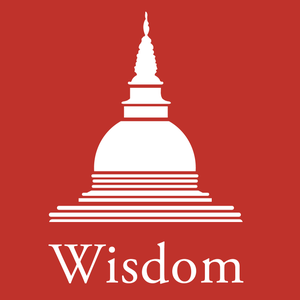 The Wisdom Podcast
The Wisdom Podcast
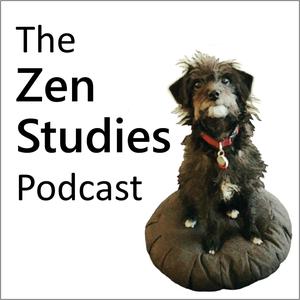 The Zen Studies Podcast
The Zen Studies Podcast
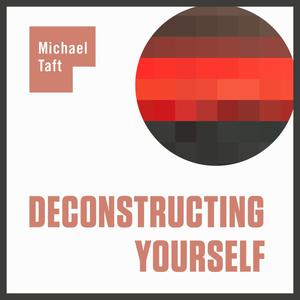 Deconstructing Yourself
Deconstructing Yourself
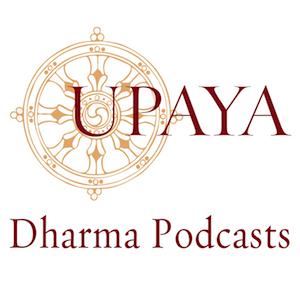 Upaya Zen Center's Dharma Podcast
Upaya Zen Center's Dharma Podcast
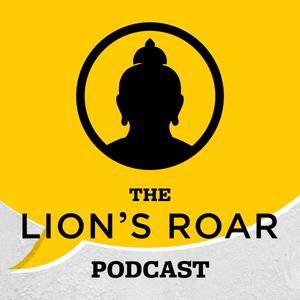 The Lion’s Roar Podcast
The Lion’s Roar Podcast
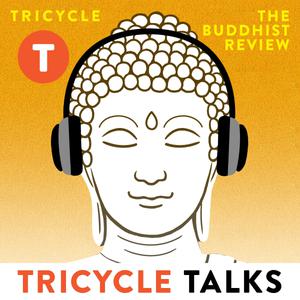 Tricycle Talks
Tricycle Talks